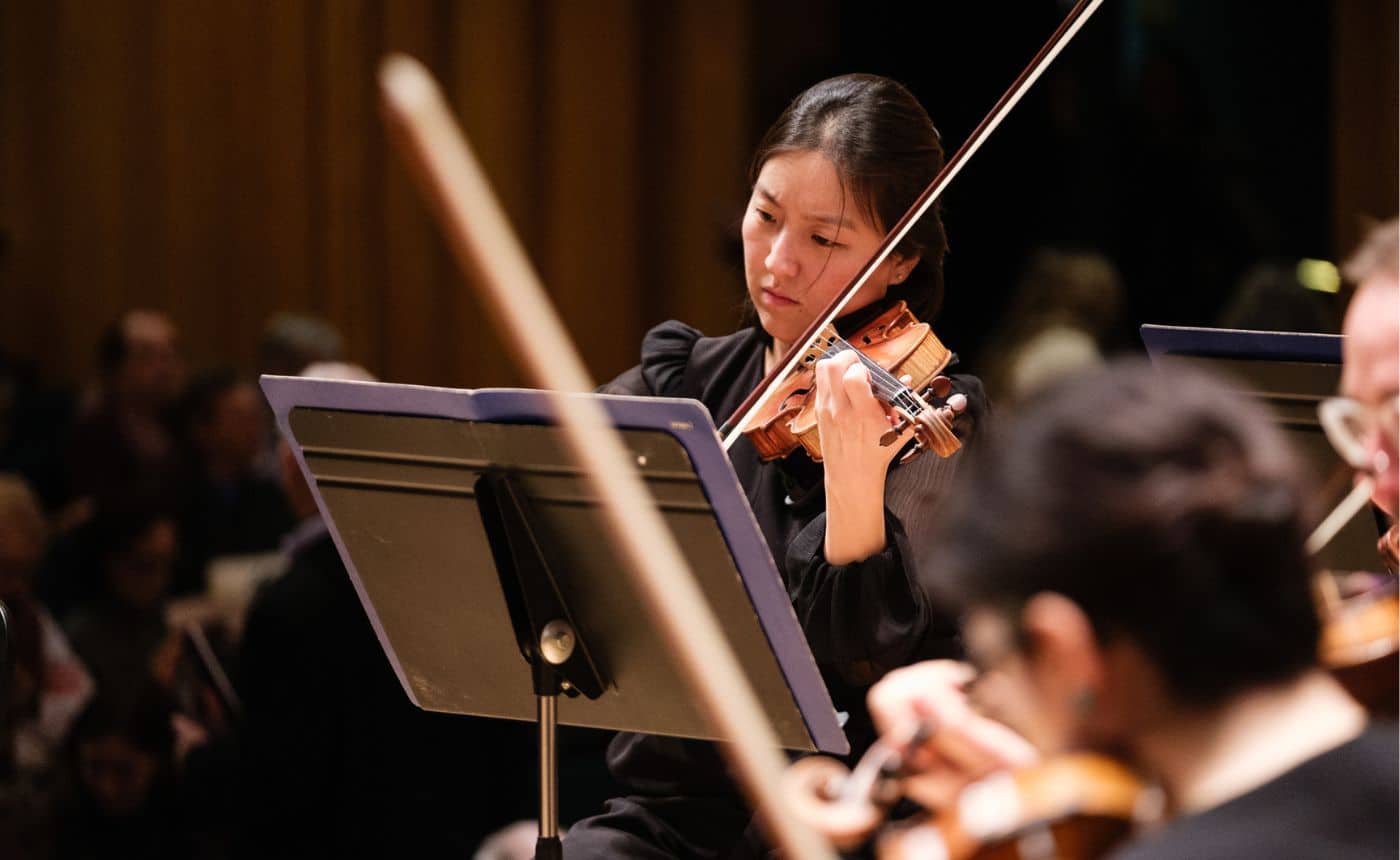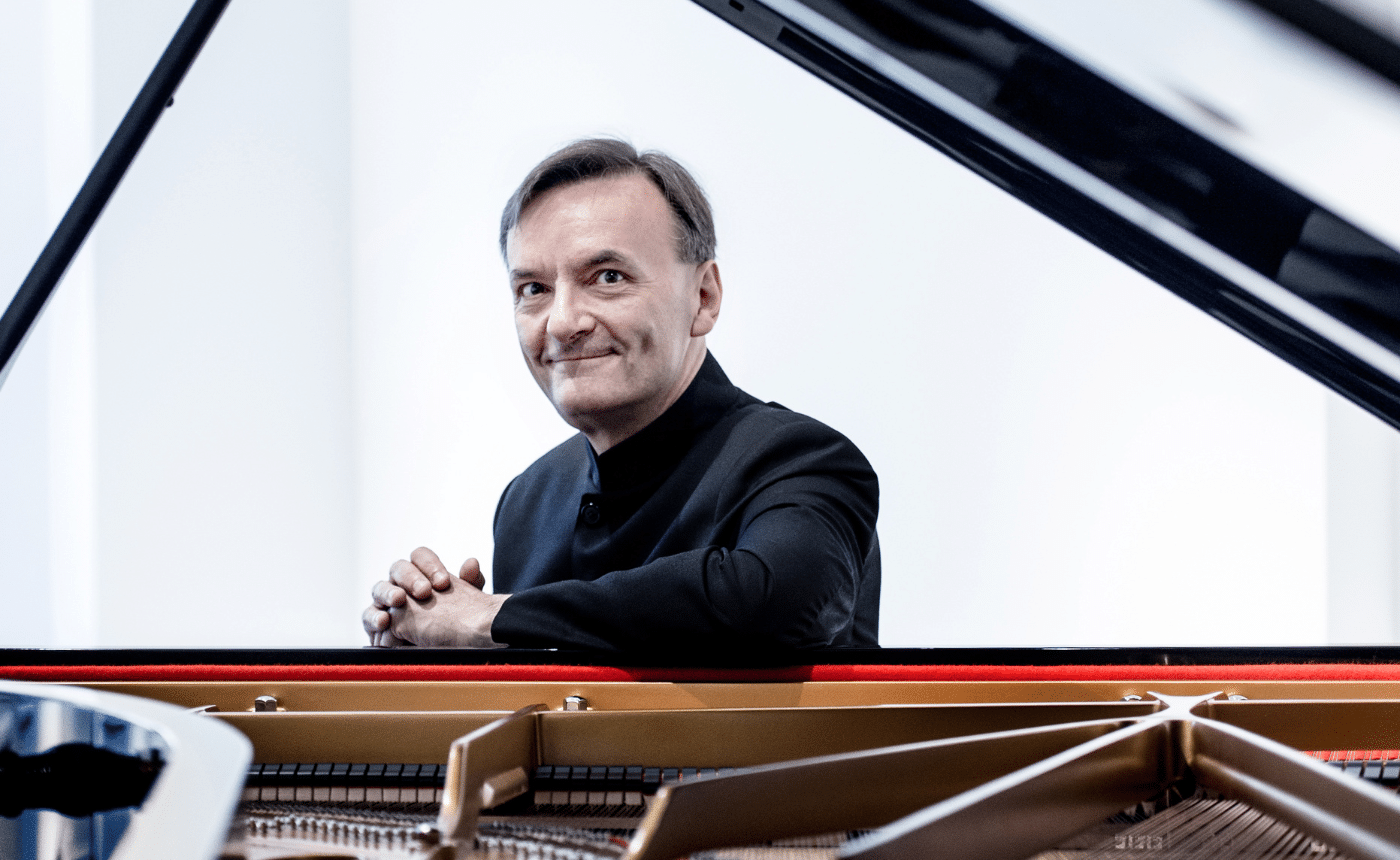BEETHOVEN: Piano Concerto No. 5 “Emperor”
by Jeff Counts
THE COMPOSER – LUDWIG VAN BEETHOVEN (1770-1827) – Vienna was under French bombardment and eventual occupation during the spring and summer of 1809. Beethoven, ironically, had turned down a position with Napoleon’s brother Jérôme a year earlier, but the Austrian royal family convinced him to stay in the capital by offering a generous annual salary. Sadly, the comfort this allowance provided was short-lived. With French boots on the march, the Emperor’s court fled Vienna and took their beneficence with them. It was a decidedly unhappy time for the composer. The city was emptied of friends and opportunities for music-making, and the complete lack of contact he had with the rest of Europe caused his productivity to drop significantly.

THE HISTORY – It did not drop to nothing though. Once the cannon’s quieted and left his city full of “marching men and misery”, Beethoven somehow managed to compose the last and grandest of his piano concerti. Beethoven never performed the 5th Piano Concerto himself. Given the fact that the first four were essentially written for his own concert use, this seems a clear indication that his deafness had progressed to a point that made public solo appearances impossible. Instead, Friedrich Schneider handled the Leipzig premiere in 1811 while Beethoven’s pupil Carl Czerny played the eventual Vienna performance later in 1812. Like so many of the nicknamed pieces throughout music history, the moniker of “Emperor” was not applied by composer himself but, supposedly (and spuriously) in this case, by a French officer who called it “an emperor among concertos.” True or not, one wonders if Beethoven would have tolerated it given the damage Vienna suffered at the hands of the current self-proclaimed “Emperor” Napoleon (not to mention the abandonment of the city by his own monarch). At any rate, the heroic appellation works when you divorce it from its moment in history. The 5th Concerto is impressively regal in scale and impact. Gone forever is the idea of the concerto as a virtuosic display work, with a pre-ordained formal structure and an orchestra tasked solely with the passive accompaniment of the soloist. Plenty of dazzling virtuosity is on display here but the “Emperor” Concerto, like the 4th Concerto before it, is essentially a three-movement symphony with solo piano. Beethoven flouts many of the accepted conventions in the 5th Concerto (placing cadenzas at the beginning of the first movement rather than the end, for example) and the sum of his innovations kicked down the door of Classical era tradition, clearing a path for the even more grandly proportioned works of Brahms and Rachmaninoff.
THE WORLD – Elsewhere in 1811, Paraguay and Venezuela declared their independence from Spain, the Battle of Tippecanoe was fought in America, and England’s Mad King George III was deemed too insane to rule and was effectively replaced by the Prince of Wales.
THE CONNECTION – The “Emperor” Concerto was most recently featured on the Utah Symphony Masterworks Series in September 2016. Emanuel Ax appeared as soloist.
Preview music or sign in to your Spotify account to enjoy the entire composition.











